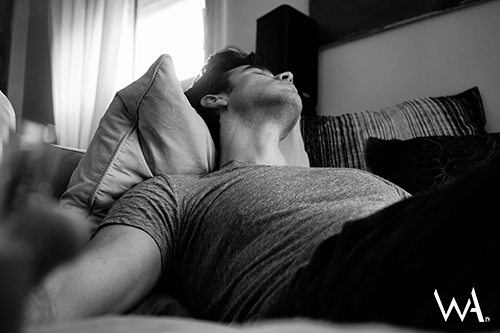
Rest and recovery
Other Blogs
-
10/22/2025 10:11 PM
Empowering Female Athletes. Youth Basketball & Soccer Performance in Omaha
-
10/22/2025 9:57 PM
High School Football Playoffs: Mental Preparation Tips | Warren Academy Omaha
-
10/30/2024 1:58 PM
Breaking Down Plyometric Training: How to Build Explosive Power for Football
-
10/23/2024 12:00 PM
Offseason Training: Why Speed And Agility Matters
-
10/16/2024 12:05 PM
Functional Strength: Why Athletes Need More Than Just Lifting Weights
-
10/9/2024 12:07 PM
The Role of Flexibility in Sports: Why It’s Key to Preventing Injuries
-
10/2/2024 12:09 PM
Preventing Burnout In High School Athletes
-
9/11/2024 1:34 PM
Injury Prevention 101: Keeping Football Athletes Safe and Healthy During the Season
-
8/28/2024 2:35 PM
Stability Training: What It Is & Why It’s Beneficial
-
8/14/2024 12:16 PM
Injury Prevention Strategies for High School Football Players
-
8/7/2024 10:15 AM
In-Season Recovery Tips
-
7/31/2024 12:10 PM
Why In-Season Strength Training Is Crucial For Football Athletes
-
7/24/2024 1:24 PM
Developing Leadership Skills: Becoming a Leader On and Off the Field
-
7/17/2024 12:37 PM
Athlete Qualities That Make You GREAT
-
7/10/2024 12:03 PM
Benefits Of Playing Multiple Sports In High School
-
7/3/2024 11:51 AM
Fuel Your Body: Essential Tips For Athletes
-
6/19/2024 9:33 AM
Tips on building confidence on and off the field
-
6/12/2024 10:09 AM
Mobility vs Flexibility
-
6/5/2024 3:15 PM
Summer Training Essentials
-
5/29/2024 4:20 PM
Position-Specific Training: Tailoring Workouts for Football Players
-
5/22/2024 12:55 PM
Staying Motivated During Offseason Training
-
5/15/2024 1:52 PM
Functional Movement Training: Improving Mobility and Stability for Athletic Performance
-
5/1/2024 9:45 AM
Summer Training Essentials: Staying Active and Improving Skills During the Offseason
-
4/24/2024 1:05 PM
Preventing Injuries: Conditioning and Injury Prevention Drills for Running Backs
-
4/10/2024 12:34 PM
Acceleration vs Speed: Why athletes need both
-
4/3/2024 12:34 PM
The role of carbohydrates in post-workout recovery
-
3/27/2024 1:41 PM
Mental Toughness Training: Building Resilience In Young Athletes
-
3/20/2024 9:03 AM
Why Strength Training is Vital For Athlete Development
-
3/13/2024 7:52 AM
Offseason Injury Prevention: Ways To Keep Your Body Safe
-
2/28/2024 12:30 PM
Speed Development Strategies: Enhancing Athletic Performance for Football Players
-
2/28/2024 9:11 AM
Defensive Technique: Training Tips For D-Line, LBs and DBs
-
2/21/2024 12:45 PM
Maximizing Offseason Gains: A Guide for High School Football Players
-
2/14/2024 2:39 PM
Speed and Strength: The Cornerstone for Football Athletes
-
2/7/2024 12:17 PM
The Warren Academy Game Changer Program
-
1/24/2024 9:05 AM
Private Position Training At Warren Academy
-
1/17/2024 4:05 PM
Welcome To Our New Website!
-
2/1/2023 1:49 PM
Benefits of training as a team
-
1/25/2023 11:13 PM
Why Athletes Need Strength Training
-
1/18/2023 12:16 PM
Offseason Football Training Overview
-
1/11/2023 10:22 AM
Unsigned Senior & Top Prospects Showcases
-
1/4/2023 12:16 PM
Athlete New Year’s Goals
-
12/21/2022 11:33 AM
Stay Motivated This Offseason
-
12/14/2022 10:42 AM
College Showcase Tips
-
12/7/2022 11:54 AM
The Benefits Of Speed And Agility Training For Young Athletes
-
11/30/2022 12:23 PM
Importance Of A Strong Core
-
11/17/2022 3:15 PM
Advantages Of Playing Multiple Sports
-
11/11/2022 1:30 PM
Setting Athlete Goals
-
11/3/2022 2:59 PM
Start Your Offseason Off Stong
-
10/26/2022 12:40 PM
Qualities All Great Athletes Encompass
-
10/19/2022 11:23 AM
How Young Athletes Can Deal With Failure
-
10/5/2022 1:42 PM
Athlete Recovery Tips
-
9/21/2022 1:18 PM
Ways Athletes Can Stay Confident In Themselves
-
8/25/2022 8:26 AM
The Importance Of Athlete Stretching
-
8/18/2022 11:43 AM
How To Be The Best Teammate
-
8/3/2022 11:52 AM
Managing Sports and School
-
7/27/2022 11:54 AM
How Athletes Can Make A Great First Impression
-
7/20/2022 12:15 PM
Qualities Of A Leader
-
7/6/2022 12:32 PM
The Benefits Of Being A Multi-Sport Athlete
-
6/29/2022 11:45 AM
Summer Agility Drills
-
6/22/2022 11:18 AM
Staying Motivated During Summer Training
-
6/1/2022 11:39 AM
Nutrition For Faster Injury Recovery
-
5/25/2022 12:16 PM
How Are You Preparing For Your Workouts?
-
5/18/2022 11:45 AM
Summer Training Tips
-
5/4/2022 11:33 AM
Why Core Strength Is Essential For Optimal Performance
-
4/20/2022 12:52 PM
The Benefits of Resistance Training for Athletes
-
4/6/2022 11:25 AM
Best Ways To Build Speed
-
3/23/2022 12:25 PM
Why Sport-Specific Training is Beneficial to Athletes
-
3/9/2022 12:32 PM
How To Tell When Your Are Overtraining
-
2/16/2022 11:50 AM
How To Manage Being A Multi-Sport Athlete
-
2/2/2022 4:12 PM
Athlete Recruiting Tips
-
1/19/2022 11:00 AM
Ways Athletes Can Build Strength
-
1/5/2022 11:24 AM
Ways To Stay Motivated And Focused During The Offseason
-
12/15/2021 11:51 AM
Ways To Improve Acceleration
-
12/1/2021 12:02 PM
UPDATED: Reasons To Play 7v7 During The Offseason
-
11/17/2021 11:19 AM
The Importance Of Attending Football Camps
-
11/3/2021 11:34 AM
How To Tackle Your Offseason
-
10/20/2021 10:58 AM
How Yoga Benefits Athletes
-
10/6/2021 10:34 AM
Recruiting Tips For High School Athletes
-
9/22/2021 2:11 PM
Athlete Tips: Dealing with failure
-
9/8/2021 10:44 AM
Benefits Of In-Season Training
-
8/25/2021 11:25 AM
How To Manage Your Time As A Student Athlete
-
8/11/2021 9:35 AM
How To Impress Coaches Early In The Season
-
7/14/2021 10:45 AM
Tips On Mentally Preparing For A New Season
-
6/30/2021 9:30 AM
Football Summer Agility Drills
-
6/16/2021 10:48 AM
Things Athletes Need In Order To Become Great
-
6/2/2021 10:25 AM
The Importance Of Good Nutrition When Injured
-
5/19/2021 10:48 AM
Tips On Staying Motivated Throughout The Summer
-
5/5/2021 10:59 AM
How Any Athlete Can Become A Great Leader
-
4/21/2021 10:51 AM
How Youth Sports Help Teach Life Skills
-
4/7/2021 10:51 AM
Benefits of Team Training
-
3/10/2021 10:43 AM
Ways To Be A Good Teammate
-
2/24/2021 10:40 AM
Mobility vs. Flexibility: What’s the Difference?
-
2/10/2021 10:35 AM
Benefits of Resistance Training
-
1/27/2021 9:28 AM
How to make yourself stand out at tryouts
-
1/13/2021 10:54 AM
College Recruiting Tips for Athletes
-
12/23/2020 11:03 AM
Benefits of Strength and Conditioning Programs
-
12/9/2020 10:56 AM
How Speed and Agility Training Benefits Athletes
-
11/25/2020 11:38 AM
Why stretching is important for every athlete
-
11/11/2020 10:39 AM
Benefits of Sport-Specific Training
-
10/28/2020 11:01 AM
Off-Season Training Tips
Rest and recovery
https://www.warrenacademy.com/images/uploads/content/_resized/7b84b301-984a-483e-b5b9-f570a88dc97d.jpg
Omaha Media Group https://www.omahamediagroup.com/images/uploads/monster_gallery/Omaha-Media-Group-Black.jpg
OMG Admin
https://www.omahamediagroup.com/images/uploads/monster_gallery/Omaha-Media-Group-Black.jpg
OMG Admin

 https://www.omahamediagroup.com/images/uploads/monster_gallery/Omaha-Media-Group-Black.jpg
OMG Admin
https://www.omahamediagroup.com/images/uploads/monster_gallery/Omaha-Media-Group-Black.jpg
OMG Admin

Many athletes already know that getting rest after exercising is essential. That’s usually easier said than done. It’s hard to skip a day and hangout on the couch when athletes are so used to being on the go. Rest days are critical to sports performance for a variety of reasons. Some are physiological and some are psychological.
Building recovery time into any training program is important because that is the time the body will adapt to the stress of exercise. Recovery will allow the body to replenish energy stores and repair damaged tissues. Exercise or any other physical work causes changes in the body such as muscle tissue breakdown and the depletion of energy stores as well as fluid loss.
Without recovery time to repair and replenish, the body will breakdown from intensive exercise. In general, it takes your body almost two weeks of non-activity before you start losing a noticeable amount of your progress or performance level. Don’t think your day off from training will set you back.
Over-training can be the root of your sleeping issues as well. Too much exercise can put your body into a state of restlessness. Taking rest days can help bring down your alertness and heart rate, which can help you get a night of sound sleep. During periods of heavy activity, our immune systems are constantly activated and repairing muscles and joints. Without proper rest your immune system cannot catch up to all the repairs your body needs.
Sleep can be one of the biggest factors to performing at your best. It’s important for athletes to make the most of their nightly sleeping routine. Start by unplugging smart devices. Electronics emit artificial light that tricks your body into thinking it’s daylight and stops the production of melatonin. Keep things dark. Use light-tight blinds, shades and window covering to help set the right environment for sleep. Ambient light can be a distraction.
Lowering the thermostat in your bedroom to between 68 and 65 degrees. It can help you fall asleep faster and sleep more soundly. You should experiment with the temperatures to see which climate you sleep best in. You can also experiment with blankets and the amount of blankets you keep on your bed. Keeping things on the cool side is better for sleeping than being too hot.
Try limiting your caffeine intake. It will help improve your quality of sleep and will help you fall asleep faster. For many people drinking highly caffeinated drinks late in the day can impair sleep. It’s also important to maintain a regular sleep schedule. Going to bed and waking up at the same time each day is ideal. A regular schedule makes your training routine more consistent. If you sleep and wake up at the same time, your body can adapt to a regular training and nutrition plan as well.
Warren Academy, powered by DREAM, has been helping student-athletes increase their performance, mentally and physically since 2008. With over 10 years of service, Warren Academy has helped guide hundreds of athletes to college. Interested in learning more about Warren Academy’s youth sports training Omaha programs? Contact us today!







